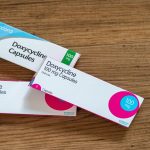If you’ve experienced a loss of taste after a COVID infection, you understand the void that accompanies a bite into your favourite foods. For most of us, the richness of flavor in savory dishes is an essential part of life’s pleasures, and zinc plays a crucial role in enhancing these experiences. Zinc Should Get From Food : Not Supplements. According to Kate Zeratsky, a registered dietitian nutritionist at Mayo Clinic, zinc is not just about taste; it’s a nutrient that orchestrates over 100 vital actions in our bodies. This essential mineral, not produced in the body, is obtained through supplementation or dietary intake, offering a plethora of health benefits.

The Multifaceted Benefits of Zinc
Zinc is a cornerstone in the cellular structure of our bodies, influencing over 300 enzymes crucial for metabolism, digestion, and nerve function. Dr. Uma Naidoo, director of nutritional and lifestyle psychiatry at Massachusetts General Hospital, highlights its role in promoting healthy growth and development, as well as maintaining a robust immune system, skin, hair, and nails.
Zinc is also a key player in DNA creation, cell growth, and tissue healing. While commonly associated with treating the common cold, its effectiveness in this area is inconclusive. However, it has proven to be a successful treatment for acute diarrhoea in children and may slow the progression of age-related macular degeneration, an eye condition affecting sight.
Detecting and Addressing Zinc Deficiency
In addition to affecting taste, Dr. Naidoo noted that a zinc deficiency can cause weakened immunity, hair loss, impotence, eye problems, and a possible connection to depression and ADHD in children. Detecting a deficiency can be challenging due to zinc being a trace mineral. However, routine tests can identify it, especially if symptoms arise.
The Balancing Act: Zinc in Diet and Supplements
While zinc deficiencies are rare in the United States, it’s crucial to strike a balance. Taking too much zinc can interfere with the absorption of copper or iron and, in extreme cases, lead to toxicity. The National Institutes of Health recommends 11 milligrams daily for adult males and 8 milligrams for adult females, with higher amounts for pregnant or nursing women.
Most individuals meet these requirements through a balanced diet rich in seafood, beef, poultry, pork, enriched dairy, eggs, cereals, lentils, and pumpkin seeds. Zeratsky emphasizes the preference for obtaining zinc from food rather than supplements, unless directed to do so by a healthcare professional for deficiency correction or specific health conditions.
In conclusion, understanding the multifaceted role of zinc goes beyond the enhancement of taste; it’s a mineral that orchestrates a symphony of essential functions in our bodies. Striking a balance through a nutrient-rich diet is key to ensuring we savor not only the flavors in our meals but also the benefits that zinc brings to our overall well-being.
For further information: https://www.msn.com/en-ca/health/nutrition
Read our previous articles: https://scitechupdate.com/index.php/treated-wastewater-exerts-an-impact-on-our-rivers/ https://scitechupdate.com/index.php/india-makes-history-by-landing-a-spacecraft-at-the-moons-south-pole/
https://scitechupdate.com/index.php/zinc-air-batteries-could-be-cheaper-and-safer-than-lithium-ion/
https://scitechupdate.com/index.php/android-14-satellite-sms-for-everyone/
https://scitechupdate.com/index.php/chemistry-entrepreneurship/
https://scitechupdate.com/index.php/waste-paper-to-battery-components-for-smarts-phones-vehicles/https://scitechupdate.com/index.php/ai-demonstrated-95-accuracy-in-listening-typing-and-data-processing/
https://scitechupdate.com/index.php/top-7-technology-trends-of-2023-from-ai-to-5d-technology

